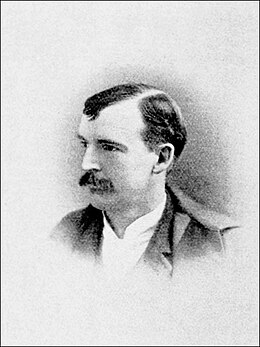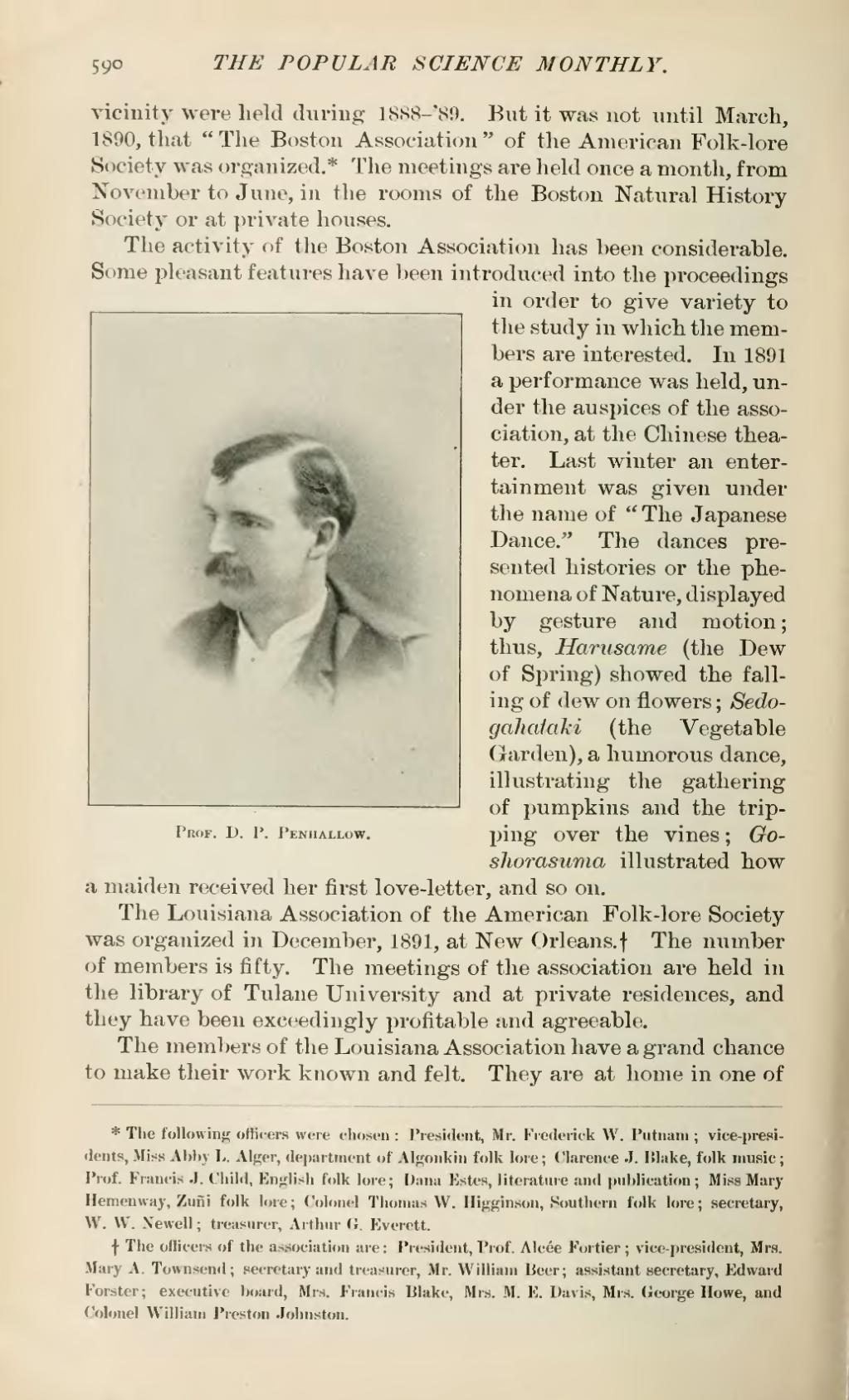vicinity were held during 1888-89. But it was not until March, 1890, that "The Boston Association" of the American Folk-lore Society was organized.[1] The meetings are held once a month, from November to June, in the rooms of the Boston Natural History Society or at private houses.
The activity of the Boston Association has been considerable. Some pleasant features have been introduced into the proceedings  Prof. D. P. Penhallow. in order to give variety to the study in which the members are interested. In 1891 a performance was held, under the auspices of the association, at the Chinese theater. Last winter an entertainment was given under the name of "The Japanese Dance." The dances presented histories or the phenomena of Nature, displayed by gesture and motion; thus, Harusame (the Dew of Spring) showed the falling of dew on flowers; Sedogahataki (the Vegetable Garden), a humorous dance, illustrating the gathering of pumpkins and the tripping over the vines; Goshorasuma illustrated how a maiden received her first love-letter, and so on.
Prof. D. P. Penhallow. in order to give variety to the study in which the members are interested. In 1891 a performance was held, under the auspices of the association, at the Chinese theater. Last winter an entertainment was given under the name of "The Japanese Dance." The dances presented histories or the phenomena of Nature, displayed by gesture and motion; thus, Harusame (the Dew of Spring) showed the falling of dew on flowers; Sedogahataki (the Vegetable Garden), a humorous dance, illustrating the gathering of pumpkins and the tripping over the vines; Goshorasuma illustrated how a maiden received her first love-letter, and so on.
The Louisiana Association of the American Folk-lore Society was organized in December, 1891, at New Orleans.[2] The number of members is fifty. The meetings of the association are held in the library of Tulane University and at private residences, and they have been exceedingly profitable and agreeable.
The members of the Louisiana Association have a grand chance to make their work known and felt. They are at home in one of
- ↑ The following officers were chosen: President, Mr. Frederick W. Putnam; vice-presidents, Miss Abby L. Alger, department of Algonkin folk lore; Clarence J. Blake, folk music; Prof. Francis J. Child, English folk lore; Dana Estes, literature and publication; Miss Mary Hemenway, Zuñi folk lore; Colonel Thomas W. Higginson, Southern folk lore; secretary, W. W. Newell; treasurer, Arthur G. Everett.
- ↑ The officers of the association are: President, Prof. Alcée Fortier; vice-president, Mrs. Mary A. Townsend; secretary and treasurer, Mr. William Beer; assistant secretary, Edward Forster; executive board, Mrs. Francis Blake, Mrs. M. E. Davis, Mrs. George Howe, and Colonel William Preston Johnston.

